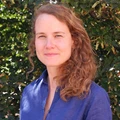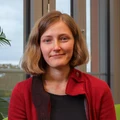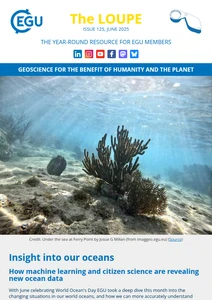President: Philip Stier
(Emailas@egu.eu)
Deputy President: Athanasios Nenes
(Email)
ECS Representative: Robert Maiwald
(Emailecs-as@egu.eu)
The Atmospheric Sciences (AS) Division is one of the largest divisions of the European Geosciences Union. The research areas covered by the division extend from the large-scale dynamical/meteorological processes and systems in the atmosphere (like cyclones and global atmosphere circulation) to the small scale turbulent mixing, they cover the time frame from centuries (in connection with climate research) to seconds (in the context of fast chemistry). Atmospheric sciences include studies of the atmosphere composition, aerosol and cloud physics, gas-particles interactions and chemical reaction kinetics studied in the labs.
Recent awardees

- 2025
- Vilhelm Bjerknes Medal
The 2025 Vilhelm Bjerknes Medal is awarded to
Ulrike Lohmann for outstanding research on cloud-climate interactions; integrating microscale processes and satellite data with global models to assess the radiative effects of clouds on the Earth system.
Read more

- 2025
- Division Outstanding Early Career Scientist Award
The 2025 Division Outstanding Early Career Scientist Award is awarded to
Dominik Stolzenburg for innovative contributions and dedication to the fields of atmospheric chemistry and physics, particularly in the areas of new particle formation and nanoparticle growth.
Read more

- 2024
- Vilhelm Bjerknes Medal
The 2024 Vilhelm Bjerknes Medal is awarded to
Lucy Carpenter for establishing a critical link between the production of trace gases in and over the oceans, atmospheric chemistry, and climate change.
Read more

- 2024
- Outstanding Student and PhD candidate Presentation (OSPP) Award
The 2024 Outstanding Student and PhD candidate Presentation (OSPP) Award is awarded to
Abigail McConnell Radical Processes on Secondary Organic Aerosols
Read more

- 2024
- Outstanding Student and PhD candidate Presentation (OSPP) Award
The 2024 Outstanding Student and PhD candidate Presentation (OSPP) Award is awarded to
Alexander Platter Uncertainty of eddy covariance-derived net ecosystem CO2 exchange over a mountain forest reduced by multiple nighttime filtering approaches, or not?
Read more

- 2024
- Outstanding Student and PhD candidate Presentation (OSPP) Award
The 2024 Outstanding Student and PhD candidate Presentation (OSPP) Award is awarded to
Anja Katzenberger Monsoon Planet: Studying Monsoon Dynamics in an Idealized Setup
Read more

- 2024
- Outstanding Student and PhD candidate Presentation (OSPP) Award
The 2024 Outstanding Student and PhD candidate Presentation (OSPP) Award is awarded to
Daniel Boateng African monsoon changes in the Late Cenozoic from the climate modelling perspective
Read more

- 2024
- Outstanding Student and PhD candidate Presentation (OSPP) Award
The 2024 Outstanding Student and PhD candidate Presentation (OSPP) Award is awarded to
Hannah Meyer Abundance of giant mineral dust particles: Insights from measured emitted dust size distributions during the J-WADI campaign
Read more

- 2024
- Outstanding Student and PhD candidate Presentation (OSPP) Award
The 2024 Outstanding Student and PhD candidate Presentation (OSPP) Award is awarded to
Luise Schulte Representation of Arctic mixed-phase clouds in the ECMWF Integrated Forecasting System during MOSAiC
Read more

- 2024
- Arne Richter Award for Outstanding Early Career Scientists
The 2024 Arne Richter Award for Outstanding Early Career Scientists is awarded to
Nadia Bloemendaal for her outstanding contribution to research in atmospheric science with a focus on tropical cyclones and extreme weather.
Read more
Current issue of the EGU newsletter











